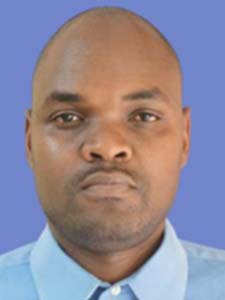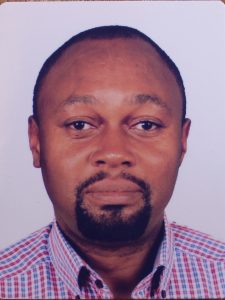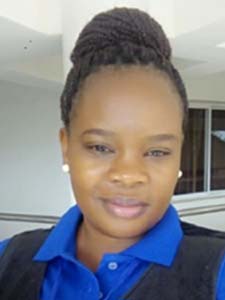Departments and Units
- Administration and Human Resource Management
- ICT Unit
- Communication and Marketing
- Estates Management
- Finance
- Health Center
- Internal Audit
- Laboratory Services
- Legal Services
- Planning and Development
- Procurement Management
- Quality Assurance
- NM-AIST Consultancy Bureau
- Resource Mobilization and Investment
The Human Resources Management Department consists of all the activities undertaken at NM-AIST to ensure the effective utilization of employees toward the attainment of individual, group, and organizational goals.
The NM-AIST HRM functions focuses on the people side of management. It consists of practices that help the organization to deal effectively with its people during the various phases of the employment cycle, including pre-hire, staffing, and post-hire. The pre-hire phase involves planning practices. The Institution must decide what types of job openings will exist in the upcoming period and determine the necessary qualifications for performing these jobs. During the hire phase, the organization selects its employees. Selection practices include recruiting applicants, assessing their qualifications, and ultimately selecting those who are deemed to be the most qualified.
Objective of the HRM Department
To develop and administer periodic performance, salary reviews and suitable remuneration and staff welfare packages for job satisfaction and staff retention.
Services Offered by HRM Department
- To plan, develop, review and coordinate transparent HRM policies and procedures including their enforcement
- To prepare human resources projections and plans
- To develop monitoring and evaluation framework for implementation of staff projections, recruitment, deployment, training and appraisal so as to ensure that University activities are effectively carried out timely as planned
- To develop comprehensive human resources management manual
- To coordinate the preparation and review of HRM University budgets
- To ensure that the University has a conducive working environment free from fears for health and safety risks and for sexual harassment, and that the interests of the University and those of employees are integrated
- To ensure smooth running of registry
- To prepare quarterly reports for the University management meetings
- To serve as Secretary to the Appointments and Human Resources Management Committee
 | Sweetbert .S. Mutagurwa Chief Human Resources Management Officer Head of Department of Human Resources Management Email: sweetbert.mutagurwa@nm-aist.ac.tz |
1. Introduction
The ICT UNIT serves as a backbone to the institution by supporting core and supporting units through ICT services. The unit facilitate teaching and learning, research and innovation to all the four schools of the institution and research units.
2. Objective of ICT Unit
The main objective of ICT Unit at NM-AIST is to enhance the core functions of teaching and learning, research and innovation through application of modern ICT resources and services in serving various targeted groups within and outside the institution, these include; Staff, Student, Academia and the Society, conveniently. Furthermore, through NM-AIST library facilitates, the centre provides computing services to assist researchers address the real-life needs and challenges of the society and industry.
3. Services Offered by ICT Unit
The ICT Unit offer the services and support in terms of internet connection, video conference services and support, mail services, portal system (intranet), Application and Management systems [Students, Human Resource, Accounts and Finance], IP Phone services and support and Maintenance of all ICT hardware and software. The whole campus has wireless connection [Administration, Laboratory & Library, Student Centre, Cafeteria, Hostels] and also there is cable network connection in the all buildings, including student’s hostels through the support of the optical fiber.
The ICT team is supporting more than 15 different systems running in the campus. The team developed internally more than 6 systems, customized open source and acquire some of them.
4. ICT Unit Team
Mr. Joshua J. Mushi
ICT Manager

Mr. Mikcy Thambikeni
Senior ICT Officer
Ms.Josephine Mwangu
Senior ICT Officer
Mr. Gasper W. Lweja
ICT Officer
Introduction:
The Communication and Marketing Unit is essential for crafting and maintaining the Institution public image and messaging. This unit is tasked with managing all aspects of communication and marketing, from internal and external messaging to media relations and strategic public relations initiatives. By developing and executing effective strategies, the unit ensures that the organization’s brand is positively represented and that communication efforts are aligned with Institutions goals.
The Communication and Marketing Unit (CMU) at the NM-AIST is strategically positioned to build mutually beneficial relationships between the institution and its publics (internal and external). As a strategic office, CMU anticipates, analyzes the environment, and interprets public opinion for the informed decision making of the institution about issues of public interest and through developing programs that inform the public of the institutional role and position in the community.
The Mission of Communication and Marketing
- To ensure that the NM-AIST’s core values, aspirations, mission, vision, and undertakings are communicated to the community and various stakeholders, through internal and external communication platforms timely.
- To promote clear communication of the University’s goals and strategic plans within the organization.
- To link between the university and its clients, public and development partners
What does CMU do?
- Events Management
- Partnerships/ collaborations Management
- Media Relation
- Corporate Social Responsibility (CSR) and Community engagement
- Brand Communication & Promotion
- Products/services promotion
- Issues Management
Functions:
- Oversee all external and internal communications, including press releases and other public announcements.
- Initiate and develop strategic communication and public relations plans that align with the organization’s objectives.
iii. Anticipate, analyse, interpret, and address issues impacting the institution’s image and reputation.
- Promote and uphold a strong, positive, and credible institutional image.
- Collaborate with institutional management on key messages, publications, and delivery mechanisms.
- Develop and implement public strategies to increase media coverage of the institution’s events, trends, and initiatives.
vii. Build, maintain, and enhance relationships with the media, including establishing and managing a media contact database.
viii. Serve as the institution’s principal media liaison officer.
- Organize and manage protocol, media events, press releases, and briefings.
- Initiate and manage relationships with various institutional stakeholders, and maintain a comprehensive stakeholder database.
- Collaborate with designers, writers, producers, and web staff to create engaging and effective communication materials.
xii. Perform any other related duties as assigned by the supervisor.
 | Ms. Lorietha Laurence Mwaigwisya Acting Head of Unit Email: lorietha.mwaigwisya@nm-aist.ac.tz |
| | Ms. Hellen Shayo Title : Public Relations Officer Email: hellen.shayo@nm-aist.ac.tz |
Introduction:
The Estates Management Unit is integral to overseeing and enhancing the institution’s physical infrastructure and facilities. This unit is responsible for formulating policies, providing expert advice, and coordinating various aspects of estates management, including project feasibility, consultancy services, and maintenance activities. By ensuring effective management and strategic planning of the institution’s estates, the unit supports the development and sustainability of the institution’s infrastructure.
Roles:
- Formulate policy proposals related to estates activities to guide the management and development of institutional properties.
- Provide specialized advice and services to management on estates-related matters.
iii. Conduct feasibility studies and evaluate the viability of proposed projects within the institution.
- Coordinate consultancy services for estates management to ensure expert input and effective implementation.
- Maintain and coordinate work contacts with building and maintenance staff of the Estates Unit for smooth operations.
- Prepare and compile budget estimates for capital development projects.
vii. Develop and implement training and development plans for Estates staff to enhance their skills and effectiveness.
viii. Oversee the preparation of the physical master plan to guide future development and infrastructure projects.
- Coordinate the effective maintenance and rehabilitation of the institution’s infrastructure to ensure its longevity and functionality.
- Perform any other related duties as assigned by the supervisor.
Under Construction.
The health services department is located opposite the estate offices near the PhD village. The department is under the DVC-PFA and it is headed by the Chief medical officer who oversees its day to day operations. Currently, the unit/department offers curative and preventive services to staff, students and its surrounding community. Curative services offered includes outpatient services, laboratory services, medical counseling, referral and Medical emergency services. Medical emergency services are offered 24 hours a day from Monday to Sunday while routine services are offered during normal working hours (8am to 4pm, Monday to Friday).
The department accepts NHIF health insurance cards.
The range of laboratory services offered are as follows:
- MICROBIOLOGY – Serology
VDRL/RPR
Hepatitis B Antigen
Hepatitis C Antigen
HIV Rapid test
Urine pregnancy test (UPT)
Widal test
Brucella Ab Test - CHEMISTRY- Blood and or Serum, Urine, CSF and other Body Fluid
Blood Glucose (Fasting & Random testing)
H.Pylori testing
CRP
Urine Glucose
Urine Protein - HEMATOLOGY
Hemoglobin
ESR
Differential count - PARASITOLOGY
Blood Smear- Bs
Malaria Rapid diagnostic test (mRDT)
Urinalysis
Stool analysis
Occult Blood - BLOOD GROUPING & TRANSFUSION
ABO & RH Blood Grouping
Regulation 28 of the Public Finance Regulation (2001) requires every Accounting Officer to establish an effective Internal Audit functions throughout the Public Sector Entities. Internal Audit Function is an important component of internal control, risk management and corporate governance and provides the necessary assurance and advisory services to the organization.
The Internal Audit Unit at NM-AIST is a unit formed by a team of auditors with the aim of providing independent, objective assurance and consulting services designed to add value and improve an organization’s operations. It helps an organization accomplish its objectives by bringing systematic, disciplined approach to evaluate and improve the effectiveness of risk management, control and governance processes. Due to the NM-AIST’s dynamic environment, the scope and intents of Internal Audit is changing every now and then to align with environmental changes and for streamlining purposes and to align with International Professional Practices Framework (IPPF) and International Standards on Auditing (ISA).
The Internal Audit Unit is responsible for providing internal audit services in accordance with the Internal Audit Charter and in compliance with the Code of Ethics for Internal Auditors, Standards for Internal Auditing and other guidelines issued by the Ministry of Finance.
Reporting
The Chief Internal Auditor reports functionally to the Audit Committee and administratively to the Vice Chancellor. Among other functions, CIA reports quarterly to the Audit Committee on whether management’s action plans have been implemented and whether the actions taken have been effective.
Mission of Internal Audit Unit
The mission of internal auditing in the Public Sector Entities in Tanzania is to enhance and protect organizational value by providing risk-based and objective assurance, advice and insight.
 | Mr. Japhet E. Shirima Chief Internal Auditor Email: japhet.shirima@nm-aist.ac.tz |
Introduction:
The Laboratory Manager plays a pivotal role in overseeing and enhancing laboratory operations, ensuring that all activities meet high technical and quality standards. This position is responsible for coordinating laboratory activities, developing experiments, managing resources, and supporting both academic and technical staff. By maintaining effective laboratory management practices and fostering a high standard of technical expertise, the Laboratory Manager contributes significantly to the institution’s research and educational objectives.
Message from Laboratory Manager
I am pleased to welcome you all to the NM-AIST Laboratory which is located at the Nelson Mandela African Institution of Science and Technology, Arusha Tanzania. Our laboratory is equipped with the state-of-the-art equipment and well qualified laboratory personnel. The NM-AIST Laboratory is committed to provide quality services in response to analytical needs and expectations of its customers (students, staff, both residents and non-resident’s researchers and community). The laboratory is strive to maintain quality, safe and effective environmental, water, food, biochemical, energy, materials, computer, computational and telecommunication investigations with utmost professionalism. We commit ourselves to comply with the requirements of the ISO/IEC 17025 standard and continually improve effectiveness of quality. Thus, if you are looking for a place to analyze your samples or undertake research works consider the NM-AIST laboratory is your perfect destination.
Welcome!
Dr. Mwema Felix Mwema – Laboratory Manager
Laboratory Management Board
- Chairperson: Ms. Stella Emmanuel Mrosso from Tanzania Bureau of Standards (TBS)
- Secretary : Dr. Mwema Felix Mwema, Nelson Mandela African Institution of Science and Technology Arusha
- Mr. Shori Furael Sawe, from Tanzania Atomic Energy commission (TAEC)
- Head of Laboratory Sections, Microbiology, Molecular, Food : Mr. Sylvester Gerald Temba, from Nelson Mandela African Institution of Science and Technology Arusha.
- Head of Laboratory Sections Electronics and Computer science: Mr. Ramadhani Sinde from Nelson Mandela African Institution of Science and Technology Arusha
- Safety and Quality Assurance Officer : Mr. Emmanuel Lyimo, from Nelson Mandela African Institution of Science and Technology Arusha
Roles:
- Oversee all laboratory activities, ensuring that they are conducted with high levels of technical knowledge and quality.
- Develop student experiments and experimental rigs in consultation with academic staff to support educational objectives.
iii. Liaise with academic and administrative staff on matters related to the laboratory’s operations and requirements.
- Plan and implement maintenance programs for all laboratory facilities, ensuring they are well-maintained and operational.
- Manage the planning, purchasing, and control of laboratory facilities and materials in collaboration with the Project Management Unit (PMU).
- Participate in the development and organization of training programs for junior technical staff in the laboratories.
vii. Perform final reviews and approve laboratory reports to ensure accuracy and compliance with standards.
viii. Ensure that laboratory work meets quality assurance standards and adheres to best practices.
- Serve as the Secretary to the Laboratory Management Board Meetings, documenting and communicating key decisions.
- Perform any other related duties as assigned by the supervisor.
Achievements
- We managed to support research from different research and data generated have been published in the higher impact factor journals example Nature communication.
- We managed to support Msc and Phd Students on their Laboratory research
- Deliver analysis services to Industries, farmers, entrepreneurs
- Provide sanitize to the community as a measure to fight Covid 19
- In a process of accreditation under ISO 17025
Under Construction.
Introduction:
The Planning and Development Unit is essential for steering the institution’s strategic and financial planning efforts. This unit plays a key role in advising on financial and management systems, preparing budgets and project proposals, and developing policies and guidelines. By ensuring that the institution’s planning and financial strategies are well-managed and aligned with both internal and external requirements, the unit supports the institution’s growth and operational effectiveness.
The planning and strategic development department deal with all Institutional Corporate Plans and resource allocation in general; and specifically, the major functions are as elaborated hereunder.
Roles:
- Advise relevant authorities, as per the organizational structure, on all matters related to planning, finance, and management information systems.
- Prepare budgets for submission to the Ministry responsible for Higher Education.
iii. Develop plans and project documents for submission through the Council to the government and other donors for funding.
- Review the corporate strategic plan and provide recommendations to Management on necessary adjustments.
- Develop and implement planning policies for the institution.
- Create planning guidelines for use at the school, faculty, or departmental level.
vii. Serve as the Secretary to the Finance, Planning, and Development Committee (FPDC), documenting and communicating key decisions.
viii. Perform any other related duties as assigned by the supervisor.
Major functions of the Strategic Planning and Development Department
- Formulates and co-ordinates corporate plans and strategies based upon priorities for resource allocation to various functional areas,
- Liaises with Government Ministries and departments on all issues concerning planning, budget, and monitoring and evaluation of plans
- Co-ordinates preparation of recurrent and capital development budgets and prepares mid-term budget review,
- Reviews and evaluates reports on the plan performance
Staff
 | Daniel Lohay Fissoo Chief Planning Officer Email: daniel.fissoo@nm-aist.ac.tz |
The Procurement Function is a crucial component of our Institution,
responsible for overseeing and optimizing the purchasing and stock
management processes. This function ensures the acquisition of goods
and services is conducted efficiently, cost-effectively, and in compliance
with institution policies and financial guidelines.
Procurement Function:
i. Organize and manage the purchasing and procurement processes,
ensuring that systems for purchases, stock control, and movement of
stocks between Units/Sections are operationally effective, in
consultation with the Finance Manager.
ii. Secure reliable supplies to meet organizational needs.
iii. Receive and process all requisitions for purchases in a timely
manner.
iv. Review and scrutinize all purchase orders before forwarding them to
the Finance Manager for approval.
v. Provide expert advice on all matters related to the purchasing
function.
vi. Advise on the most cost-effective methods for disposing of obsolete
stock.
vii. Coordinate purchases and ensure the effective management of
store inventories.
viii. Serve as Secretary to the Institutional Tender Board.
ix. Perform any other related duties as assigned by the supervisor.
 | Mr. Japhet Laizer Acting Head Procurement and Management Unit – NM-AIST Email: pmu@nm-aist.ac.tz or japhet.laizer@nm-aist.ac.tz |
The Quality Assurance Unit (QAU) at NM-AIST aims at systematic monitoring and evaluation of learning and teaching and the processes that support them, to make sure that the standards of academic awards meet the stakeholders’ expectations, and that the quality of the student learning experience is being safeguarded and improved. The QAU aims at checking that the academic standards and quality of higher education provision meet agreed expectations of the various stakeholders. Through establishment of a quality assurance system, an institution can guarantee with confidence and certainty, that the standards and quality of its educational provision are being maintained and enhanced.
QAU systems and operations ensure that the academic quality including the learning, teaching and assessment, and all the different resources and processes the institution puts in place to help students progress and fulfil their potential, and as stipulated in the quality assurance framework of the degree awarding institution, are maintained. The academic standards are set by the qualification awarding body and include standards of performance that the student needs to demonstrate to achieve a particular classification of qualification e.g. first-class, distinction or merit, etc. Academic standards also describe levels of attainment against which performance may be measured.
In order to attain the world-class status that it endeavours, NM-AIST requires to continuously implements its core mandates with quality enhancement in mind. Quality enhancement entails that all the operations in the institution are implemented in such a manner that they provide for a continuous and positive improvement in the quality. To achieve this, the QAU have embraced a quality culture, that is, the creation of a high level of internal institutional quality assessment mechanisms and the ongoing implementation of the results. Maintenance of a quality culture by the QAU ensure that the institution progressively embeds quality assurance in all of its day-to-day operations instead of relying on periodic assessment of the quality of operations, products and services.
Rationale of Quality Assurance Unit
In line with the University Qualification Framework (UQF) developed by the Tanzania Commission for Universities (TCU), NM-AIST, like other universities in Tanzania, is subject to quality assessment, which refers to the process of external evaluation undertaken by an external body of the quality of educational provisions in institutions in order to qualify for accreditation of its programmes and to continue implementing its core functions. Therefore, in order to ensure that quality assurance matters at NM-AIST are properly coordinated and the institution continually develops and maintain good quality outputs (products and services), QAU is responsible for the coordination, monitoring and evaluation of the quality of all operations at the Institution
Functions of the Quality Assurance Unit
The functions of the Quality Assurance Unit are as follows:
- To set performance standards regarding academic delivery, research and innovation, public service and outreach for NM-AIST staff, students and partners.
- To monitor and evaluate the quality of academic delivery, research and innovation, public service and outreach activities implemented by NM-AIST staff, students and partners.
- To monitor and evaluate the quality and adequacy of facilities used for academic delivery, research and innovation, public service and outreach activities by NM-AIST staff, students and partners in meeting the set quality standards.
- To coordinate the preparation of quality assurance monitoring instruments of the Institution including guidelines, procedures manuals, checklists and related instruments.
- To coordinate the formulation and implementation of the quality assurance policy and strategies for implementation of the quality assurance matters at the Institution.
- To coordinate and support institutional- and programme self-assessment activities as well as external assessment and audit missions at the Institution.
- To devise data collection procedures, collect, compile and analyse statistical quality data, and prepare reports on quality trends and recommendations for improvement in the quality assurance system
- To collect, compile and analyse data from self-assessment, and external assessment or audit reports as well as prepare reports and recommendations for streamlining quality assurance activities at the Institution.
- To analyse quality assurance reports generated from NM-AIST’s operations including student’s evaluation, staff evaluation external, external examiners’ reports and other such reports and identify issues that require the attention of various offices within the institution for appropriate actions.
- To identify quality assurance training needs and organize training interventions for staff and students in order to meet and maintain the required quality standards.
- To appraise clients’ needs and investigate customer complaints and non-conformance issues, review the implementation and efficiency of quality assurance systems and develop, recommend and monitor corrective and preventive actions.
- To prepare reports for communicating outcomes of quality activities to NM-AIST’s clients, stakeholders and the general public.
- To monitor all operations that affect quality in the implementation of the mission and vision of the Institution and ensure compliance with quality and industry regulatory requirements.
- To provide liaison services with the Tanzania Commission for Universities, regional and global higher educational regulatory bodies as well as partner institutions on quality assurance matters.
- To perform any other functions deemed important for promoting and maintain a robust quality assurance system at NM-AIST.
Staff
The Quality Assurance Unit at NM-AIST is headed by head who is appointed by the Vice Chancellor. The head-QAU assisted by Quality Assurance Officers and work directly with all other units in the Institution to ensure that they adhere to agreed quality standards. In order to ensure that quality assurance issues are mainstreamed in all the day-to-day functions of the Institution, there is a Quality Assurance coordinator in each of the major units of the institution including Schools, units, Directorates, Centres, Administrative and Technical Departments. Quality assurance functions in Academic Departments is coordinated through the Schools.
 | Prof. Athanasia matemu Head – QAU Email: athanasia.matemu@nm-aist.ac.tz |
About the Consultancy Bureau
The NM-AIST has set up a Consultancy Bureau (CB) to coordinate consultancy services. The institution recognizes the value of its staff in undertaking consultancy activities within the institution and outside. The provision of consultancy services is an important mechanism to transfer knowledge, skills and technology to external stakeholders such as the government, business sector, non-governmental organizations, community organizations, and the general public both local, regional and international.
Consultancy Services Offered
A: Materials, Energy, Water and Environmental Sciences
- Design systems for water purification and wastewater treatment, Nanotechnology, Biogas systems, Water quality studies, Solid waste management, Bio sorption and Water Filtration Systems, Water Supply for Marginalized Communities, Water Quality Control and Monitoring, Hydrology and Water resources management & recovery, GIS and Remote sensing, Water and sanitation, Water resources, farmer-led irrigation development, and policy
- Environmental Management and Nuclear applications in Environmental Sciences
- Design, size, install and troubleshoot Renewable Energy (Electro-Mechanical Engineering)
- Mechanical and Materials Engineering
B: Business Strategies and Humanities
- Business Modelling, Strategic Business Planning and Development, Corporate/Business Strategies Development, Business Management, Corporate Finance, SMEs Development, Budgeting, Financial Modelling, Management and Forecasting, Digital Marketing, International Business Management and Marketing, Organizational Development and Management and Transformation, Entrepreneurship Management, Innovation, Economic Management & Policy Analysis, Cost Benefit Analysis, Value Chain Analysis, Energy Economics, Gender issues and Humanities
- Instructional Design and Pedagogy, Curriculum Development and Review
- Trainer of Textbook writers
C: Mathematical Modeling and ICT /Digital Technologies
- Applied Mathematical Modeling, Statistical Analysis
- High Performance Computing (HPC) facility
- Cyber Security, Cyber Forensic, Ethical Hacking, Software Development and Quality Assurance
- Mobile Telecommunication Network Planning and Optimization
- Artificial Intelligence, Ethics in Artificial Intelligence, Machine Learning, Data Science, Data Modeling
- E-Commerce /E-Business
- Embedded Systems, Internet of Things (IoT)
- Computer Network Planning and Configuration
- IT Project Management Audit and Assurance, Project Monitoring and Evaluation, Modelling Project Success
- IT Project Management Best Practices and Standards, IT Project Management Methodologies
- AI/ Data Science/ Machine Learning Project Management
- Agile Software Development Methodologies
- Digital Transformation Strategy Development
- Gender Issues in STEM (training/ capacity enhancement, mainstreaming gender in plans, projects, programmes, curricula and research, gender action research, gender audit, gender mapping, developing gender strategies)
- Research Capacity Development
D: Life Science and Bio-Engineering
- Molecular Plant Pathology, Seed Technology and Plant Molecular Markers
- Crop Pests Management, Plant Nutrition, Land Evaluation for Crop Production, Sustainable Plant Crop Protection
- Immunology, Proteomics, Communicable and Non-Communicable diseases, Emerging and re-emerging of infectious zoonoses, One Health
- Application of Nanotechnology in medical research (including animal health) – Nanomedicine and Neuroscience
- Disease Epidemiology and Surveillance, Participatory epidemiology, Tropical parasitology and Vector- Borne diseases
- Mycotoxin Risk Assessment, Human Nutrition and Food Safety
- Food Science, Food Bio/technology, Functional foods, Pharmacognosy
- Biodiversity Conservation and Ecosystem Management (Ecology, Conservation Biology, Conservation Genetics, Biodiversity and Climate Change and Natural Resources Management)
- Natural Products Chemistry
- Biostatistics, Epidemiology, Mathematical Epidemiology, Health Economics and Statistical Programming using R.
- Epidemiology and Surveillance of Zoonoses, Molecular diagnostics, HIV and related malignancies
- Biomedicine
- Agronomy; Biology of Crop Production, Soil Fertility Management,
- Crop improvement for abiotic stress tolerance, biotic stress resistance, nutritional quality and other related crop production research for enhancing food security
- Spatial Ecology, Landscape and Functional Ecology, Ecological Modelling, Remote Sensing and GIS, Biophysical Data Analysis.
 | Dr Elizabeth Mkoba Coordinator – NM-AIST Consultancy Bureau |
Introduction:
The Resources Mobilization and Investment Unit is instrumental in driving the institution’s efforts to secure and optimize financial resources and investments. This unit is responsible for coordinating resource mobilization activities across all schools, directorates, and units, as well as overseeing investment projects and fundraising initiatives. By aligning these efforts with the institution’s strategic goals, the unit ensures effective management of financial resources and supports the institution’s growth and sustainability.
Roles:
- Coordinate resource mobilization efforts across all schools, directorates, and units within the institution.
- Provide leadership and oversight for investment projects and fundraising initiatives in accordance with institutional directives.
iii. Steer revenue generation activities related to research and innovations, in line with the institution’s Intellectual Property (IP) policy.
- Negotiate and secure various forms of financial aid and resources for the institution.
- Manage and coordinate all investment-related activities within the institution.
- Serve as the Secretary to the Resources Mobilization and Investment Committee for Management Meetings.
vii. Serve as the Secretary to the Resources Mobilization and Investment Committee for Council Meetings.
viii. Perform any other related duties as assigned by the supervisor.











 Visit Today : 720
Visit Today : 720 Visit Yesterday : 1636
Visit Yesterday : 1636 This Month : 29393
This Month : 29393 This Year : 99897
This Year : 99897 Total Visit : 787163
Total Visit : 787163